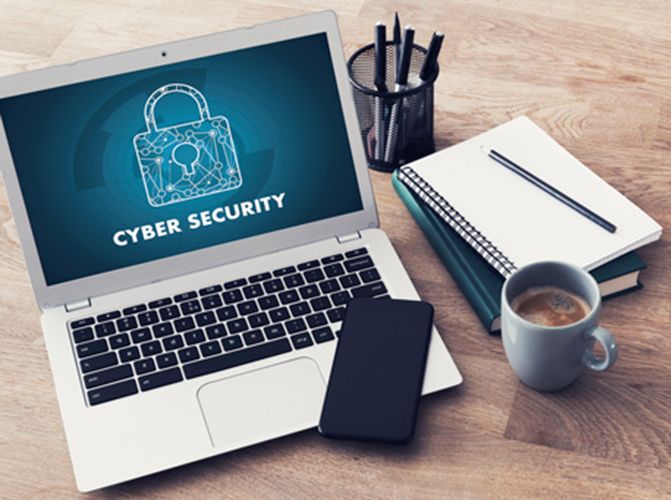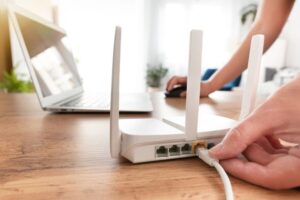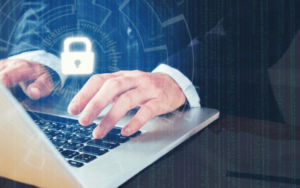The internet is a vast space where you can find information, have fun, and connect with others, but it also poses numerous risks to your privacy. Advertisers, hackers, and even service providers can track your data as you browse the internet without you even realizing it. The first step to staying safe online is understanding these threats. If you don’t take action when visiting websites, you could expose personal information, your location, browsing history, and device data—information that can be used against you.
Why Online Privacy Matters More Than Ever
With more people using online banking, social media, e-commerce, and working from home, your digital footprint is larger than ever. Your search history, login credentials, and contact list are all part of this footprint. If you don’t protect your private information, it can be stolen, lost, or used in identity theft, data breaches, or financial loss. It’s not just about keeping it private; it’s about taking control of your data and ensuring a secure online experience.
Use a Secure and up-to-date browser.
Using a secure and reliable web browser is one of the easiest ways to protect your online privacy. Some browsers are more secure than others, while others can be more aggressive in collecting your data. Choose a browser known for its security and keep it up to date. Browser updates often include security fixes to protect you from newly discovered risks. Avoid using older browsers, as they may not have the proper protections to protect you from new online threats.
The Importance of Private Mode
When it comes to protecting your privacy, the privacy or incognito settings in your browser are very useful. These modes prevent your browser from storing cookies, histories, or temporary files while you’re using it. This approach doesn’t make you completely invisible, but it can provide more privacy when using a shared or public computer. It’s important to remember that private mode doesn’t prevent websites, your internet service provider (ISP), or your network administrator from viewing your activity.
Use a VPN to Browse the Internet Unseen
A VPN, or virtual private network (VPN), is one of the best ways to keep your internet activity private. VPNs hide your IP address and encrypt your internet traffic, making it harder for others to detect your online activity. Whether you’re using public Wi-Fi or reading content that’s only available in certain areas, a VPN can protect your device from potential eavesdroppers. Make sure you choose a VPN service that doesn’t log your data and uses strong encryption.
Update your Software and devices.
Hackers often exploit vulnerabilities in outdated software and operating systems to steal personal data. Always keep your devices up to date with the latest security patches and updates to mitigate these risks. This applies not only to your computer’s operating system but also to applications, browsers, and antivirus software. Automatic updates are an effective way to stay safe without having to look for new versions yourself.
Don’t Click on Suspicious Links and Pop-ups
Cybercriminals often use fake links and pop-ups to hack users’ devices or steal personal information. These links and pop-ups can appear to be fake security alerts, reward notifications, or links to download content. If you receive an email, text message, or website asking you to click an unknown link, stop immediately. Ensure phishing protection is enabled in your browser and use a pop-up blocker. These tools can help prevent inappropriate content from appearing on your screen.
Be Aware of the Risks of Public Wi-Fi
While public Wi-Fi is convenient, it’s not always secure, making it an easy target for hackers. Avoid checking emails or banking on public Wi-Fi, as these contain important information. Always use a VPN when connecting to public networks to keep your data secure and private. Logging out of your account and disabling automatic connection are two other ways to stay safe in public.
Limiting Information Shared on Social Media
Social media sites are full of personal information that users often share voluntarily. Cybercriminals can collect information such as your full name, date of birth, location, and work history. Check the privacy settings on each platform to ensure that only authorized individuals have access to your messages and personal information. Think twice before sharing information with the public. Don’t post anything that could be used to answer security questions or guess your password.
Conclusion
To maintain your online privacy, you need to be well-informed, develop good habits, and use the right tools. Protecting your personal information from anyone who might want to see it while you’re online is crucial. Using a secure browser, a VPN, keeping your software up-to-date, and being careful about what you click or post can significantly reduce the risk of privacy breaches. It’s not about being overly cautious; it’s about being careful every time you connect to the internet.
FAQs
1. Is private browsing mode enough to keep you anonymous online?
No, private browsing only prevents your device from storing your activity. It doesn’t prevent websites, internet service providers, or network administrators from viewing your online activity.
2. Is using a free VPN safe?
Some free VPNs aren’t secure. Some free VPNs can track your activity or sell your data. It’s best to use a commercial VPN provider you trust and that prioritizes privacy and encryption.
3. How often should I clear my browser cookies?
It’s a beneficial idea to clear cookies regularly, especially if you use a shared computer or visit a large number of websites. This helps protect your privacy and limit tracking.
4. Can antivirus software keep my personal information safe while online?
Antivirus software can help detect malware and phishing threats, but it doesn’t completely protect your privacy. It should be used in conjunction with other tools, such as a VPN and a secure browser.
5. How can I ensure my password is strong enough?
Use numbers, characters, and symbols (uppercase and lowercase). Avoid using private information. A password manager can help you securely create and manage complex passwords.




